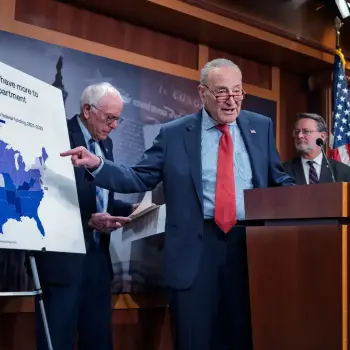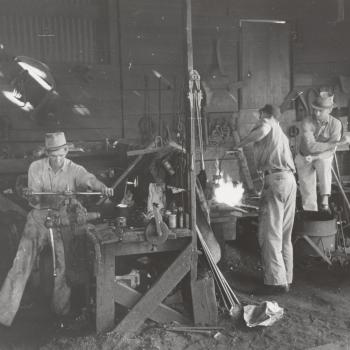Not now, but soon.
This morning, we are in between. Our whole lives are lived in between, of course, in anticipation of one thing and leaving behind another, suspended between this thing and the next like a telephone wire between two poles, but never are we so aware of this as in the holy seasons of Lent and Advent. During those times, leading up to the holiest days on our Christian calendar, we live intentionally in between, waiting for those moments that will give us understanding, those moments when God will break into our world and show His glory, those moments when God's story intersects with ours and gives it ultimate meaning.
And these are the days in our church calendar when John the Baptist walks and talks and bears witness to the fact that God is entering into the world in a way never before seen or heard. Like a voice crying in the wilderness, it is John who tells the world that Jesus is coming, and that things will never be the same again.
Like most of the stories in the Bible, these concerning John the Baptist are also a story about our lives here and now, in between. There's a lot for us to learn from John if we consider everything his witness might teach. This story from my story is just one example:
One fall when I was so sick that I didn't know if I would live to see another Advent, I sat down with a man who worked with troubled people like myself to tell him about a narrow escape I'd had recently.
He listened to my story, and made the right nods and noises of sympathy.
Then he asked me, "Do you know why God saved you?"
I had no idea. At the moment, it felt more like a curse than a blessing to be a survivor.
But he fixed me with his gaze and said something that would ultimately show me my place in the world and God's place in my life. "I think you're still alive," he said, "because you're meant to help someone else."
My response at that moment was not exactly affirmative. Direct contradiction is not the Southern way, but at the time, I thought that my helping someone else was not very likely. It seemed to imply a long-term commitment to life that I did not at that time possess.
Of course, now, ten years later, here I stand, and what I have come to understand is this: The man who made this prediction was John the Baptist, a messenger of hope in dark times preaching change and conversion. He told me about a future that I could and should embrace, and stood near as I moved from one place to the other.
In the lives of most of us there has been at least one person like the one in my story who stood at the threshold of hope, and in the story of John the Baptist we see a powerful witness to the importance of preaching change and preparing the way, the clear value of community.
John's presence as a herald for Jesus is one of the rare things found in all four of our canonical gospels, and in early extra-biblical sources like the Jewish historian Josephus, John is more widely testified to than Jesus himself. Even the Jesus Seminar agrees that John was an actual social prophet who preached an actual message of repentance (the Greek word is "metanoia," symbolizing an ontological change in a person's way of seeing and being).
John was real, and so was his message—real enough to, as verified by history, get himself killed by the powers that be.
The connection between John and Jesus varies from gospel to gospel, but the real truth for us is the narrative truth: John was a prophet who called people to do the right thing, to change their way of being and seeing. And he was a mentor who was at hand to stand beside Jesus as he moved into his work of salvation and reconciliation.
The name "mentor" comes from Homer's Odyssey, as you may know, and it has come to stand for any person who gives the hero of a story the help or knowledge or inspiration she or he needs to complete that story. Often the mentor stands at the threshold between the world that has been and the world that is coming—at the place in between—and is somehow involved in the hero's transition from one life to the next.
Joseph Campbell showed how most of the great stories of humankind—including the story represented by the life of Jesus—follow a pattern he called The Hero's Journey, in which the hero leaves the ordinary world and steps across some sort of threshold—a physical boundary like a river, a portal, a new understanding. John comes to preach metanoia—fundamental change—and that change is evident most powerfully in Jesus himself. In the Gospel of Luke, it is John's baptism of Jesus that actually marks this moment when Jesus of Nazareth crosses the threshold. Before, as the villagers of Nazareth will tell us, Jesus was just the carpenter's son; after, he preaches and teaches and performs wonders and shakes his culture to its foundations.





